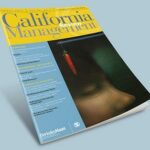The Internet has had a great impact on how companies communicate with their stakeholders. Companies now have the means to be more transparent than ever before, if they choose to be. And stakeholders have learned to use the Internet for coordinating campaigns aimed at changing corporate behavior.
Infonic, a London-based Internet communications consultant, has created two series of reports that examine how the Internet influences corporate agendas and the perceptions of stakeholders. These reports, entitled Reputation Impact and netAware, include much material about corporate social responsibility (CSR).
Reputation Impact (RI), first published in November 2001, identifies and tracks online CSR-related issues and interprets the impact these issues have on corporate reputation. Reputation Impact is the only publication that focuses on CSR issues as they relate to the Internet.
"Reputation Impact is principally aimed at corporate communication departments," said Roy Lipski, Infonic’s managing director. "Our aim is to give them a greater understanding of how the Internet can be used as part of a communications strategy in which investors and companies can converse more effectively."
Infonic’s second publication, netAware, focuses on climate change and globalization. In explaining how Infonic chose these subjects, Mr. Lipski said, "There was a gap in the market for independent analysis looking at the views of all stakeholders regarding these issues, not just the big global institutions and corporations. Though the topics of climate change and globalization are hotly debated amongst NGOs and activists, their views are often ignored by the mainstream media."
Each netAware edition includes a case study of a company affected by web-based activities as well as suggestions on how companies can improve their online efforts. Recent studies were carried out on ExxonMobil, Huntingdon Life Sciences and Talisman Energy.
Other consulting firms have conducted research on the relationship between the Internet and CSR, but none are focusing on that exclusively. London- and New York-based SustainAbility recently released a report entitled "Virtual Sustainability: Using the Internet to Implement the Triple Bottom Line." It examines how companies use, and do not use, the World Wide Web to advance sustainable development initiatives.
Infonic was founded in 1997 and began by offering research and analysis of how online content impacted client businesses and brands. The firm has since begun advising and implementing partnership programs with these online communities on behalf of their clients. They also continue to provide research and monitoring services.
Infonic’s clients are drawn primarily from the UK, U.S., and Germany. One such client is Unilever, the Anglo-Dutch group that manages consumer products across 150 countries. In an effort to gain a better understanding of their image and reputation worldwide, Unilever has embarked on a campaign to share information with its stakeholders online. Infonic provides Unilever with an independent perspective on, and third party endorsement of, the company’s news.
While not all of its clients are taking steps toward social responsibility, Infonic itself believes companies reap benefits when they implement a CSR program.
"Our daily research has made us aware of the increasing interest in and significance of socially responsible investing," said Mr. Lipski. "By highlighting to clients the increased importance of social issues and reporting…we’re acting as a facilitator for corporate change, helping clients align their policies and actions with stakeholder needs and concerns."



